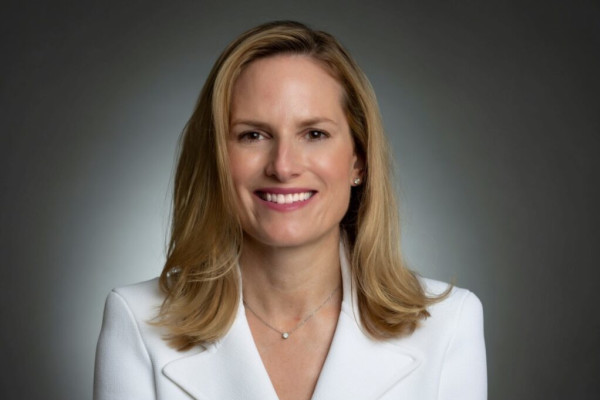
Family offices’ adoption of technology has risen drastically in recent years though there is still a long way to go
Family offices (FOs) have been notoriously slow in adopting technology, but there is a clear trend toward digitalisation at these privately held companies handling investment and wealth management for wealthy families.
“Most family offices still use a combination of Excel and Google sheets, DropBox and filing cabinets, all over the world,” says Bobby Console-Verma, CEO and co-founder of 1fs Wealth, a UK-based digital wealth platform allowing clients to control all their investments and collectables in one place.
But this archaic approach can prove a “complete nightmare”, he says, citing risks of manual errors, security, bad family governance, as well as operational and administrative inefficiencies.
There are key factors driving digitalisation at FOs. First, the increasing complexity of portfolios, today allocated to a broader range of assets than the real estate, bonds and equities of the past. Second, FOs have much more complex needs, with “even the most straightforward” offices owning special purpose vehicles, trusts and foundations.
But what really drives tech adoption are younger generations. “We're in the midst of this great wealth transfer and the next gen look aghast at all those spreadsheets,” and are demanding their parents change approach.
“The next gen are our best salespeople, because they want a digital family office in their pocket,” he says.
The Covid-19 pandemic also acted as a tailwind and FOs’ adoption of technology has gone up “exponentially” in the past few years. 1fs Wealth, which started operating less than three years ago, today serves 60-70 single family offices, including a “global, prominent” one, as well as wealth managers and multi-family offices, with a focus on the UK, Europe, Middle East and the US.
Having recently secured the backing of US venture capital firm Singularity Capital, the venture capital arm of the Jaggi FO, 1fs Wealth also makes its service available to high net worth and ultra-high net worth individuals.
Holistic view
But it has been quite a bumpy road to success. Older principals tend to be suspicious about technology and the security of the cloud, and concerned about transparency, when, in fact they are much more exposed to threats of attacks and devices being stolen by the way they currently operate.
Cost may be an additional barrier, although FOs are quickly realising that investing in technology is a “smart investment”, as professionalisation grows, says Mr Console-Verma.
The firm’s proprietary platform allows collaboration between family members, fuelling engagement of different generations and households, as well as external advisers, with the possibility of limiting access to specific areas of the platform.

It also allows families to compare the performance after fees of different wealth managers, against the family’s chosen benchmark.
More generally, digitalisation improves the organisation of the office, allowing teams to quickly respond to document requests, such as the principal’s demand for an investment performance report, while providing a high-level snapshot of the family office situation.
Digitalisation is also effective in reducing the admin workload. Clients have hundreds of properties globally, and the “sheer admin load of managing them is huge”, adds Mr Console-Verma.
“The example I use with clients is, ‘why do you care about making 100 basis points here, when you have the potential to lose tens of millions if your Mayfair property isn't insured?’”
The platform offers a holistic view of managing a portfolio, whereby the admin and operational risks are equally if not more important than the performance part of the portfolio, he says. While risk alerts are set around the portfolio, operational and admin alerts help clients monitor their entire wealth.
In addition to the core platform, clients can subscribe to different modules, such as the impact and sustainability or the succession planning modules.
Automatically connecting FO platforms to third party databases, including banks and asset managers, would be ideal. But many big banks still do not have an application programming interface (API), says Mr Console-Verma, adding that his firm provides connectivity to private banks, wealth managers and fund managers to meet client needs.
As a result, feeding data into digital platforms is today necessarily a combination of both automatic and manual entries.
Outsourcing trends
As wealth growth and the transition to the next generation creates more complexity, there is a growing trend for FOs to focus on the few areas they are good at and outsource all the other services, such as investment management, tax planning, reporting, governance as well as technology, says Katherine C. Dunlevie, president and CEO of The Family Office at US-based financial services company Synovus.
Having started 75 years ago as a single family office for the Synovus' founding family, the firm has transitioned into a multi-family office around 25 years ago, today serving around 90 families, with a combined assets under management of about $10bn.
Even more than for HNW individuals, technology for family offices needs to be able to handle complexity, she says. Performance reporting for a family owning significant numbers of alternative assets across multiple entities is necessarily more complicated. Obtaining the information to run the performance reports is challenging in itself.
Data aggregation from different sources offering a 360-degree view of the FO’s wealth, across asset classes and ownership structures, is essential for reporting, planning and performance tracking, and one of the most essential requirements for any FO. Tax planning can also be “incredibly complicated” for FOs.
“How can you as a family member, make decisions if you don't have a good grasp of everything you own? How do you understand from a risk management standpoint, where your risks are if you can't look at things in a format that lays it out there for you?”
Document management is also unique to these institutions. Family members need to be able to access all their documents in a vault. A family portal can allow them to vote as shareholders and communicate information. Like publicly traded companies put together their board books, a platform allows FO members to share reading minutes and make decisions. In that regard, digitalisation is intrinsically linked with good governance, allowing family members to connect and share updates.
But many single family offices are still “extremely paper-oriented” and face several challenges in their transition to digitalisation.
“To make any kind of conversion from one legacy system to a new one, the lift is hard and disruptive,” she adds. Moreover, for FOs it is hard to get talent, and many teams “are leaner than they probably have ever been”.
“Family offices keep putting off making the change because they don't have the people to roll up their sleeves and yet if they don't make the change, people are going to get crushed. It's sort of a chicken or an egg.”
Also, what makes the situation harder is that “there's no one silver bullet”.
“You're often having to pick from multiple systems and vendors. It's just a lot of costs, time, due diligence and headaches to get systems to talk to each other. It's not simple work,” she says.
Game changer
The “true game changer” for FOs will be the integration of many disparate systems through APIs and other integrations, says Christine Gill, head of family office at BNY Mellon Wealth Management.
“Family offices have often been torn between competing approaches of ‘best in breed’ vs ‘fully integrated’. Advances in ease of integration with multiple platforms through more sophisticated APIs will allow offices to be able to enjoy both to some degree,” she states.
But there is an overarching reason why FOs struggle to adopt technology. They are generally non-commercial, and cost centres. As such, capital expenditures are not measured with a traditional return on investment lens, says Ms Gill.
Also, unlike a commercial firm in which every advance, technologically or otherwise, could provide a competitive advantage to win new clients, they often only focus on the current stakeholder, the family.
“While they often lead in the wealth management industry, especially when it comes to creative investments and allocation ideas, family offices lag in digitalisation and will likely continue to do so,” predicts Ms Gill.
Moreover, she says, “with every family office being unique in most every way, it is extremely challenging for technology firms, who need to build scalable products, to meet the idiosyncratic needs of many family offices.”
Finally, technology providers have tended to oversell capabilities and customisations that family offices require, resulting in badly mis-set expectations. “What is currently available does, to a large degree, offer what FOs need, many just need to do a better job of ‘sticking to their knitting’, avoiding overselling and work on seamless integrations with other systems and data.”





